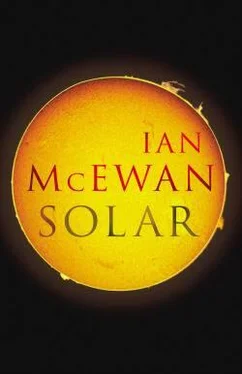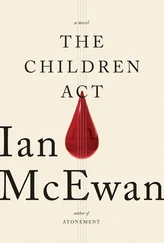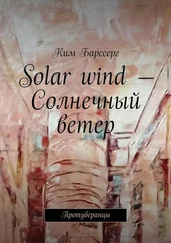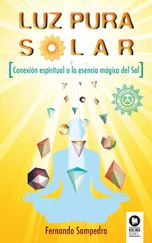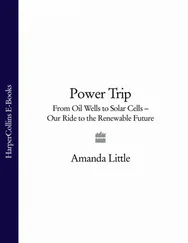Beard was not wholly sceptical about climate change. It was one in a list of issues, of looming sorrows, that comprised the background to the news, and he read about it, vaguely deplored it and expected governments to meet and take action. And of course he knew that a molecule of carbon dioxide absorbed energy in the infrared range, and that humankind was putting these molecules into the atmosphere in significant quantities. But he himself had other things to think about. And he was unimpressed by some of the wild commentary that suggested the world was in ‘peril’, that humankind was drifting towards calamity, when coastal cities would disappear under the waves, crops fail, and hundreds of millions of refugees surge from one country, one continent, to another, driven by drought, floods, famine, tempests, unceasing wars for diminishing resources. There was an Old Testament ring to the forewarnings, an air of plague-of-boils and deluge-of-frogs, that suggested a deep and constant inclination, enacted over the centuries, to believe that one was always living at the end of days, that one’s own demise was urgently bound up with the end of the world, and therefore made more sense, or was just a little less irrelevant. The end of the world was never pitched in the present, where it could be seen for the fantasy it was, but just around the corner, and when it did not happen, a new issue, a new date would soon emerge. The old world purified by incendiary violence, washed clean by the blood of the unsaved, that was how it had been for Christian millennial sects – death to the unbelievers! And for Soviet Communists – death to the kulaks! And for Nazis and their thousand-year fantasy – death to the Jews! And then the truly democratic contemporary equivalent, an all-out nuclear war – death to everyone! When that did not happen, and after the Soviet empire had been devoured by its internal contradictions, and in the absence of any other overwhelming concern beyond boring, intransigent global poverty, the apocalyptic tendency had conjured yet another beast.
But Beard was always on the lookout for an official role with a stipend attached. A couple of long-running sinecures had recently come to an end, and his university salary, lecture fees and media appearances were never quite sufficient. Fortunately, by the end of the century, the Blair government wished to be, or appear to be, practically rather than merely rhetorically engaged with climate change and announced a number of initiatives, one of which was the Centre, a facility for basic research in need of a mortal at its head sprinkled with Stockholm’s magic dust. At the political level, a new minister had been appointed, an ambitious Mancunian with a populist’s touch, proud of his city’s industrial past, who told a press conference that he would ‘tap the genius’ of the British people by inviting them to submit their own clean-energy ideas and drawings. In front of the cameras he promised that every submission would be answered. Braby’s team – half a dozen underpaid post-doctoral physicists housed in four temporary cabins in a sea of mud – received hundreds of proposals within six weeks. Most were from lonely types working out of garden sheds, a few from start-up companies with zippy logos and ‘patents pending’.
In the winter of 1999, on his weekly visits to the site, Beard would glance through the piles sorted on a makeshift table. In this avalanche of dreams were certain clear motifs. Some proposals used water as a fuel for cars, and recycled the emission – water vapour – back into the engine; some were versions of the electric motor or generator whose output exceeded the input and seemed to work from vacuum energy – the energy supposedly found in empty space – or from what Beard thought must be violations of Lenz’s Law. All were variants on the perpetual-motion machine. These self-taught inventors seemed to have no awareness of the long history of their devices, or how they would, if they actually worked, destroy the entire basis of modern physics. The nation’s inventors were up against the first and second laws of thermodynamics, a wall of solid lead. One of the post-docs proposed sorting the ideas according to which of the laws they violated, first, second or both.
There was another common theme. Some envelopes contained no drawings, only a letter, sometimes half a page, sometimes ten. The author regretfully explained that he – it was always a he – declined to enclose detailed plans because it was well known that government agencies had much to fear from the kind of free energy that his machine would deliver, for it would close off an important tax resource. Or the armed forces would seize on the idea, declare it top secret, then develop it for their own use. Or conventional energy providers would send round thugs to beat the inventor to a pulp in order to maintain business supremacy. Or someone would steal the idea for himself and make his fortune. There were notorious instances of all these, the writer might add. The drawings could therefore only be seen at a certain address by an unaccompanied person from the Centre, and only with the involvement of intermediaries.
The table in ‘Hut Two’ consisted of five builder’s planks set on trestles, supporting sixteen hundred letters and printed emails, sorted by date. To save the Minister’s face, all would need an answer. Braby, a stooping, large-jawed fellow, was furious at the waste of time. Furious, but compliant. Beard was for forwarding them all to the Minister’s department in London, along with a few model replies. But Braby thought he was in line for a knighthood and Mrs Braby was keen, and upsetting a minister known to be close to Number Ten could blow the gong away. So the post-docs were set to work, and the Centre’s first project – designing a wind generator for city roofs – was delayed by months.
All the more time for Beard, not yet a refugee from the near-silent endgame of his fifth marriage, to study the ‘geniuses’, so named by the post-docs. He was drawn by the whiff of obsession, paranoia, insomnia and, above all, pathos that rose from the piles. Was he finding, he wondered, a version of himself in certain of these letters, of a parallel Michael Beard who, through drink, sex, drugs or plain misfortune, might have missed out on the disciplines of a formal education in physics and maths? Missed out, and still craved to think, tinker, contribute. Some of these men were truly clever but were required by their extravagant ambitions to reinvent the wheel, and then, one hundred and twenty years after Nikola Tesla, the induction motor, and then read inexpertly and far too hopefully into quantum field theory to find their esoteric fuel right under their noses, in the voids of the empty air of their sheds or spare bedrooms – zero-point energy.
Quantum mechanics. What a repository, a dump, of human aspiration it was, the borderland where mathematical rigour defeated common sense, and reason and fantasy irrationally merged. Here, the mystically inclined could find whatever they required, and claim science as their proof. And for these ingenious men in their spare time, what ghostly and beautiful music it must be – spectral asymmetry, resonances, entanglement, quantum harmonic oscillators – beguiling ancient airs, the harmony of the spheres that might transmute a lead wall into gold, and bring into being the engine that ran on virtually nothing, on virtual particles, that emitted no harm and would power the human enterprise as well as save it. Beard was stirred by the yearnings of these lonely men. And why should he think they were lonely? It was not, or not only, condescension that made him think them so. They did not know enough, but they knew too much to have anyone to talk to. What mate waiting down the pub or in the British Legion, what hard-pressed wife with job and kids and housework, was going to follow them down these warped funnels in the space-time continuum, into the wormhole, the shortcut to a single, final answer to the global problem of energy?
Читать дальше
